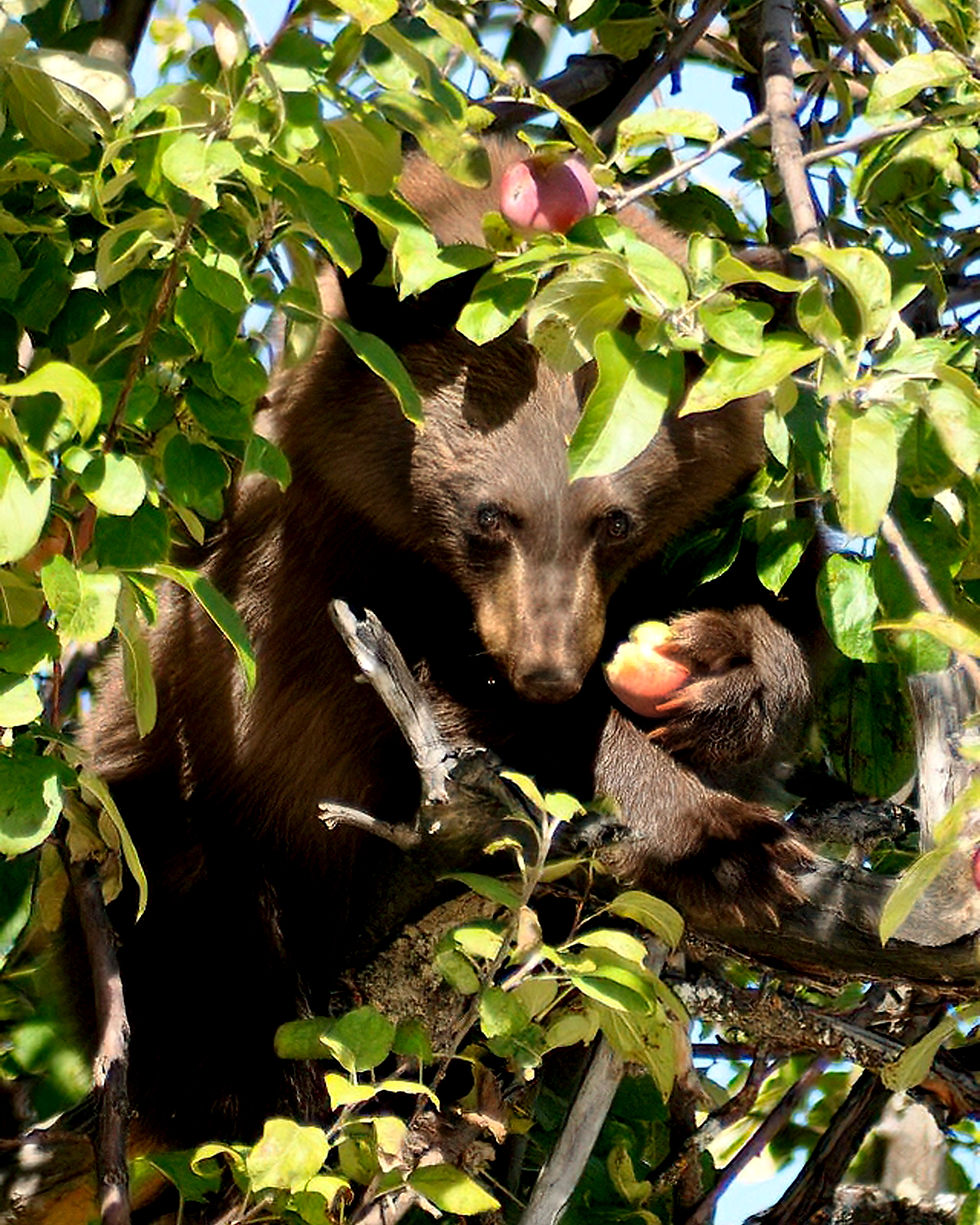Clarifying Myths About Human/Bear Conflict
- Oct 6, 2023
- 3 min read
~wildlife education~
There are some harmful myths about human/bear conflict. One myth concerns the frequency of bear attacks. In fact, bears rarely attack humans in bear country. There are hundreds of human-bear encounters in Canada, and only a very few result in personal injury. There have been only two fatal black bear attacks in Algonquin Park in Ontario in the last 40+ years. And in all of North America, there have been less than 35 fatal black bear attacks since the year 2000, or approximately 1.5 per year. According to Parks Canada, bear attacks are rare occurrences, and fatal bear attacks are even less frequent.

A bear is attracted to a bird feeder. (c) Sylvia Dolson
It's a myth that mother bears attack to defend their cubs. A female black bear will rarely attack defensively. She will instead send her cubs up a tree and try to intimidate you by acting aggressively while waiting for the threat (you) to pass. Grizzlies are another story. As a general rule, it is best to stay away from all cubs even if they are by themselves.
It's also a myth that a bear that stands on its rear legs is getting ready to attack. Usually they are trying to catch your scent or get a better look at you. If they are going to attack, they will do it on all fours.
When hiking in bear country, come prepared with bear spray. Avoid wearing strong perfumes. Keep children close to you and keep pets on a leash at all times. If you see a bear, stay calm. Speak in a calm, firm voice and back away slowly but NEVER run.
Watch for fresh bear signs and maintain a distance of at least 100 metres from a bear.
Avoid wearing headphones while walking or jogging. Make noise, clap or sing, or wear a bear bell.
Not all bears that wander through your yard are dangerous. Bears make daily excursions and may travel hundreds of kilometres in search of food. Bears require large amounts of food to prevent starvation during hibernation and to produce offspring. They are continually looking for food and that sometimes brings them into contact with humans. A bear’s sense of smell and hearing is far superior to humans. Hungry bears will enter a backyard or campground if they smell a barbecue or trash container. They are natural scavengers and have good memories. They will return to sites where they have found food before.
Bears are strong and have been known to bend open car doors and pry open windshields in their search for food.

A bear enjoying an apple.
There are things we can do to prevent attracting a bear to our cottage, home or campsite. Don’t leave any type of food, garbage or pet food where a bear can get at it. Store them inside or in a bear-proof container. Take your garbage away immediately and put it out at the curb just in time for your regular collection time (not the night before). Cooking grease, bones and waste parts of meat should be stored in the freezer until your garbage day. Do not put any meat or fish in your back yard compost bin.
Barbecues attract bears. Clean up cooking and eating areas promptly when finished and keep your grills clean and free from grease.
Suet, birdseed and hummingbird mixes may attract bears. If you have fruit trees, pick fruit and windfalls every day when ripe. Enclose composts, fruit trees, vegetable gardens and beehives with chain link or electric fencing, and keep pets inside at night.
Problem bears aren’t born, they are made that way. It is up to humans to change our behaviour to live in harmony with bears. One irresponsible neighbour can ruin it for a whole neighbourhood.
You can learn more about black bears by visiting NIWRA. Please help the wildlife in care at NIWRA by making a financial contribution on our secure website. Thank you so much for caring about wildlife!







Comments